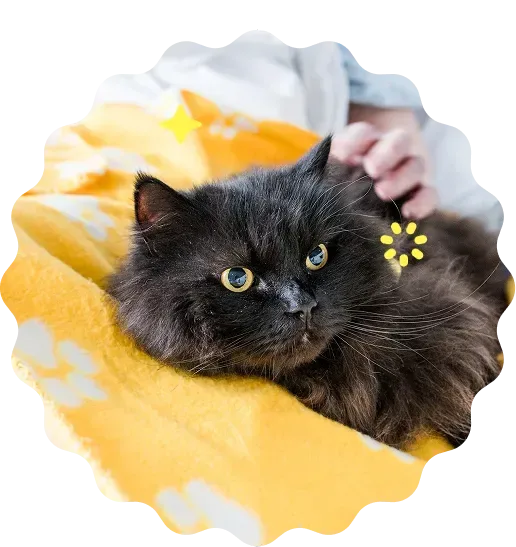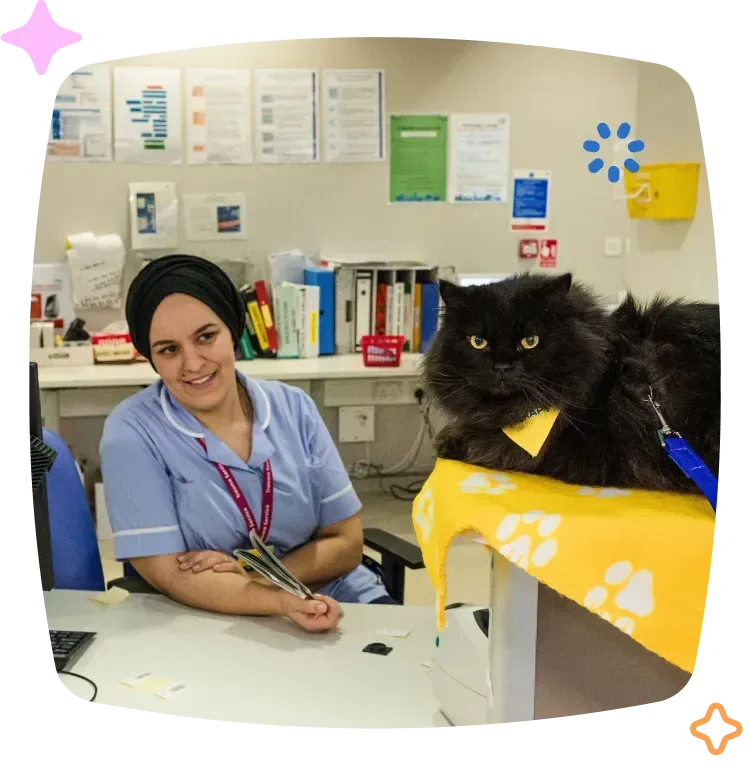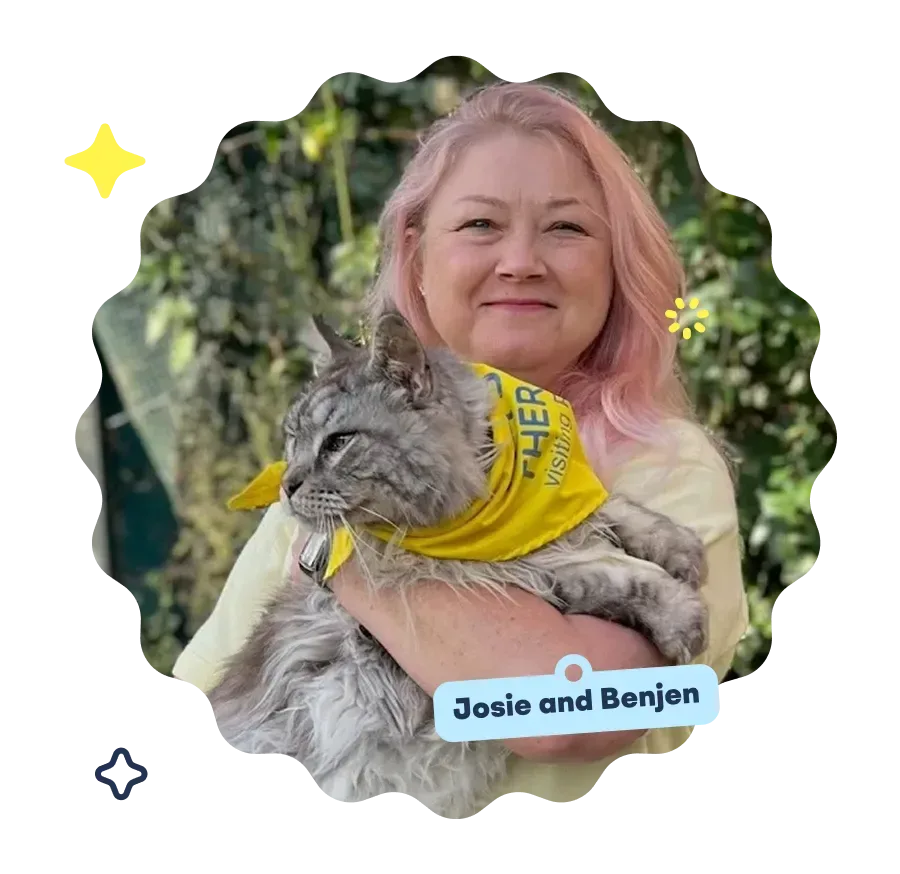Volunteer with your cat


Spread the joy with your feline friend
The majority of our PAT Pets are dogs, but some cats are happy to go on PAT visits too, and relish being touched and stroked. Volunteers and their pet cats spend time with patients in hospitals and care homes, and also visit schools.
It's really easy to be a PAT Visiting Volunteer in your local area. We just need to find out a bit more about you and your pet, and then we'll help you get started.
Would me and my cat make a great PAT team?
If you're confident and comfortable chatting to new people from lots of different backgrounds, you're off to a great start.
And if you can say yes to all of our 6 questions, then we'd love you to apply to be a volunteer.

How to apply
To volunteer with Pets As Therapy, all you need to do is apply online and give us:
- Details about your and your pet - including up-to-date vaccination certificates from your vet.
- Contact details of two people (not family) who are happy to act as a referee.
You'll then meet a PAT Assessor who will chat to you and check your pet's suitability. All volunteers need to complete online Safeguarding training to keep you and your pet safe on every visit, as well as the people you meet.
Finally, volunteers are asked to pay an annual £25 contribution which helps to fund our admin costs and third-party insurance cover for PAT Teams.

Benjen always seems to know which young person needs the most comfort on our visitsRead Josie's story
Frequently asked questions
Need more help? Take a look at our FAQs.
No, PAT Cats do not have to be house cats, however we do not accept cats that are ‘known active hunters’.
Our definition of ‘known active hunter’ refers to a cat that is known/suspected by its owner to be a habitual successful hunter (ie. hunts at least once a month or more).
We understand that hunting behaviours in cats are natural, but cats that are habitual successful hunters (regularly bringing kill/prey home, etc) do carry a higher risk to the people who benefit from PAT visits.
Our PAT Pets give so much during visits and it's important to consider their wellbeing too. If your cat is older, starting this new venture may be too demanding. Visiting familiar and sometimes busy environments can be stressful and may worsen existing health conditions.
Before you apply, please consider if your cat will be happy to be in a busy, unfamiliar building, meeting new people for two hours. This may depend on your cat's age, health, breed and existing level of activity. If your cat would struggle with this, volunteering with PAT may not be for them. If you are unsure, please have a chat with your vet before applying.
We put safety and welfare at the heart of our work and so are proud to follow guidance from the Intensive Care Society and the Royal College of Nursing which states visiting therapeutic pets should not be fed a raw diet.
For more, see a statement from the International Association of Human-Animal Interaction Organizations.
An accredited PAT Assessor will meet you and your pet at a convenient public location. The assessment should last around 45 minutes and it enables us to make sure your cat is friendly, well socialised and calm, and enjoys being stroked or handled.
We also check that your cat is fit, healthy and clean and will behave appropriately under demanding social and physical situations. We find out a bit more about you, too.
You should bring your cat's favourite treats, grooming equipment and vaccination details with you.
For more information, see our PAT Cat Assessment Factsheet.
If your cat does not meet our assessment requirements, your cat will be deferred.
You will be given clear explanation on why your pet has not passed the assessment on this occasion, guidance on how to improve and a timeline for a reassessment. The most common causes of deferral are:
Socialisation needs: Pets that are not comfortable around strangers or children should be further socialised before taking their reassessment. Pets who are nervous in a new environment will also need further socialising.
Behavioural training: Pets that jump up, paw or claw, vocalise or lick, or pull on the lead will require additional training.
For more information, see our PAT Cat Assessment Factsheet.
You don't have to wear a PAT uniform on visits, but we encourage it so everyone knows who you are. A T-shirt and cat bandana are provided free of charge to all new volunteers. You must always display your ID badge while on visits and when representing PAT at events.
Some of the places you visit may also have their own rules about uniforms.
Volunteers are required to pay an annual contribution to PAT, which is currently £25 (or £35 for a joint contribution). This is an important contribution to our running costs and also covers third-party insurance cover for PAT Teams. If you are struggling to afford this, please talk to us.
Expenses may be reimbursed by some of the places you visit. Please ask the establishment about this before you start visiting.
There is no set requirement on how often you make PAT visits, but regular visits are greatly appreciated by all those who receive them. Most volunteers will visit once a week or once every two weeks. Please discuss this with the place you intent to visit.
No. Pets As Therapy does not assess or provide working or school pets. As a PAT Volunteer, your primary responsibility is to your cat and you are unable to do this if you're teaching a class.


